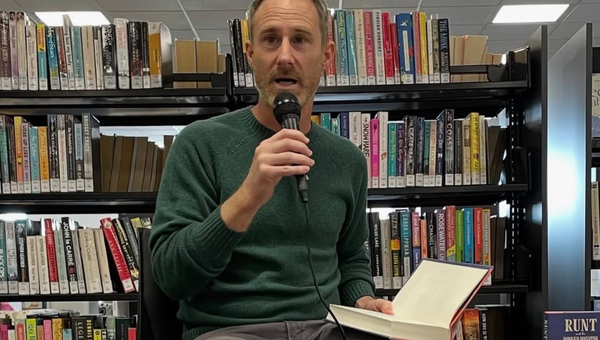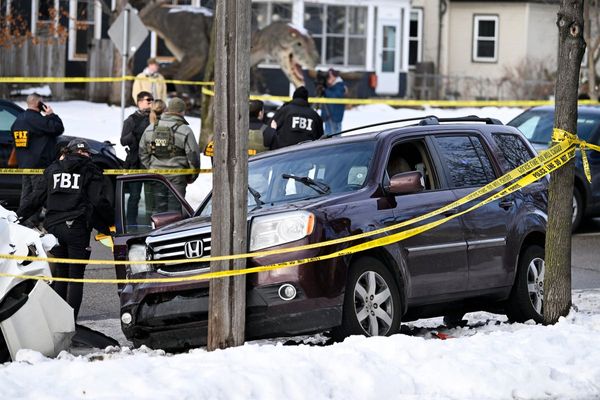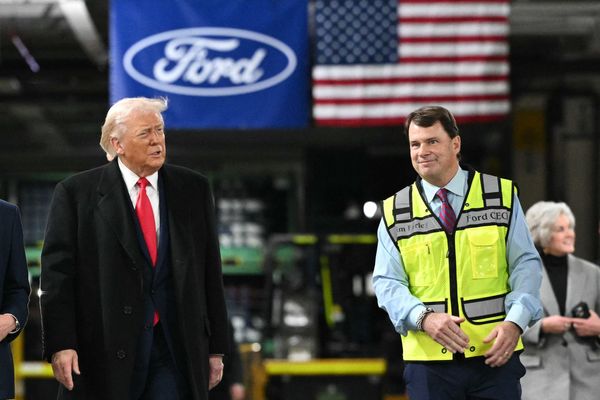
Jerusalem (AFP) - The US and Israel "see eye-to-eye" on preventing Iran from obtaining atomic weapons, America's top diplomat said Sunday, before talks in Israel with Arab foreign ministers sceptical of a nuclear pact with Tehran.
US Secretary of State Antony Blinken met top Israeli officials in Jerusalem, as signals mount that the tattered 2015 landmark deal Tehran signed with major powers will soon be restored.
Israel fiercely opposed the initial accord, which promised its enemy Iran sanctions relief in return for curbs on its nuclear programme, and has said that a revived agreement will not do enough to curb the Iranian threat.
Speaking alongside his Israeli counterpart Yair Lapid, Blinken said the US believes restoring the agreement is "the best way to put Iran's programme back in the box that it was in but has escaped" after the US withdrew from the deal under former president Donald Trump in 2018.
Despite disagreements with Israel over the nuclear deal, known as the Joint Comprehensive Plan of Action, Blinken stressed that "when it comes to the most important element, we see eye-to-eye".
"We are both committed, both determined, that Iran will never acquire a nuclear weapon."
Iran insists its nuclear programme is for civilian use only.
'United front'
Lapid said Israel had "disagreements" with Washington about the Iranian nuclear issue, which it was airing with its key ally in "open and honest dialogue".
"Israel will do anything we believe is needed to stop the Iranian nuclear programme.Anything," Lapid said.
"The Iranians want to destroy Israel.They will not succeed.We will not let them."
The European Union's foreign policy chief said at the weekend that a deal with Iran will likely be renewed "in a matter of days".
Israeli Prime Minister Naftali Bennett, after his meeting with Blinken, said Israel was specifically "concerned about the intention to de-list" Iran's Revolutionary Guards (IRGC).
Tehran has said that taking the IRGC off a US terror list is a condition for restoring the deal.Speaking in Doha on Sunday, US envoy Robert Malley said "the IRGC will remain sanctioned under US law."
Blinken and Lapid will both attend a Sunday-Monday meeting in Israel's Negev desert with foreign ministers from Egypt, Bahrain, the United Arab Emirates and Morocco.
The JCPOA has long been a source of concern for US allies in the Middle East, who see Iran as a menace.
Uzi Rabi, head of the Moshe Dayan Center for Middle Eastern Studies at Tel Aviv University, told AFP that the Negev meet was in part aimed at sending a message -- to Tehran and Washington -- as the Iran talks approach a possible conclusion.
"Iran should understand that there is a kind of united front against it," Rabi said.
"The most important message to be delivered is that there are many in the Middle East who are not satisfied with US performance regarding Iran."
UAE, Bahrain and Morocco established full ties with Israel under Trump-brokered deals.Egypt had in 1979 become the first Arab country to establish relations with the Jewish state.
Palestinian concerns
Blinken was also meeting Palestinian president Mahmud Abbas in Ramallah in the Israeli-occupied West Bank, part of the Biden administration's efforts to rebuild ties with the PA that collapsed under Trump.
Tensions in Israeli-annexed east Jerusalem, which Palestinians claim as their future capital, partly fuelled an 11-day conflict last May with Hamas Islamists who control the Gaza Strip.
Blinken said he and Bennett discussed strategies to ensure calm this year during the Muslim holy month of Ramadan and the Jewish Passover holiday, which overlap.
Blinken stressed the need to "prevent actions on all sides that could raise tensions, including (Jewish) settlement expansion" in occupied Palestinian territories, comments marking a rare in-person condemnation of Israeli efforts to expand the settler population.
Bennett is the former head of a settler lobby council and opposes Palestinian statehood.
He has ruled out formal peace talks during his tenure, but said his government would work to improve Palestinian livelihoods in the occupied West Bank and blockaded Gaza Strip.
His government on Sunday increased the permits for Gazans to work inside Israel from 12,000 to 20,000, while investing $12.4 million to improve the crossing between the strip and Israel.
"We can't solve everything, we can improve the lives of people on the ground," the premier said.







